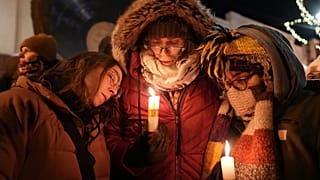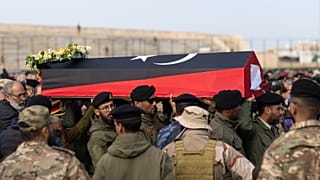Libya
The United Nations special envoy to Libya, Martin Kobler, has assured migrants in the country they will be repatriated.
Kobler was visiting the Abu Salim Detention Center in the country’s capital Tripoli on Thursday.
During the visit, the UN representative met with migrants from different parts of the continent who are living in deplorable conditions.
“I’m shocked by the many people who are here on a very small space. There are no toilettes, there is no water and people are sick,” said Kobler.
Abu Slim detention centre w/ #UNHCRLibya,IOM_Libya Reps. & head of Directorate for Combating Illegal Migration pic.twitter.com/GjyuuzpPAj— Martin Kobler (@KoblerSRSG) May 19, 2016
Meanwhile, Libyan officials detained over 100 migrants who wanted to travel to Europe through the Mediterranean.
“We detained 110 migrants from different African nationalities who were preparing to make their way to Europe,” said Libyan Brigadier Munsif Al Walda.
According to the UN refugee agency UNHCR, almost 200,000 migrants have arrived in Europe by vessels this year.
Recently, the European Union Committee charged with overseeing the end of migrant smuggling in the Mediterranean said it is proving to be difficult.
In June 2015, the EU launched an operation dubbed ‘Sophia’ aimed at curbing migrant inflows. This was necessitated after a series of disasters in which hundreds of migrants drowned while trying to cross from Libya to Italy.
Since then, about 14,000 migrants have been rescued and more than 100 smuggler boats seized. Furthermore, dozens of suspected traffickers have been arrested by Italian authorities.
AFP, Reuters











Go to video
Ethiopian police arrest 22 in human trafficking crackdown
01:12
Rwanda says UK owes $130 million over scrapped asylum scheme
00:00
'Tired but resolved': Minnesotans protest after second fatal ICE shooting
01:58
Backlash in Mogadishu against 'ignorant' Trump comments about Somalia
01:01
Minneapolis businesses and shopping malls stay empty over fears of ICE patrols
01:07
US State Department to suspend visa processing for 75 countries